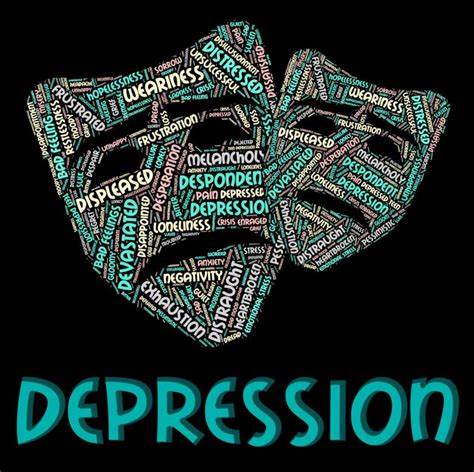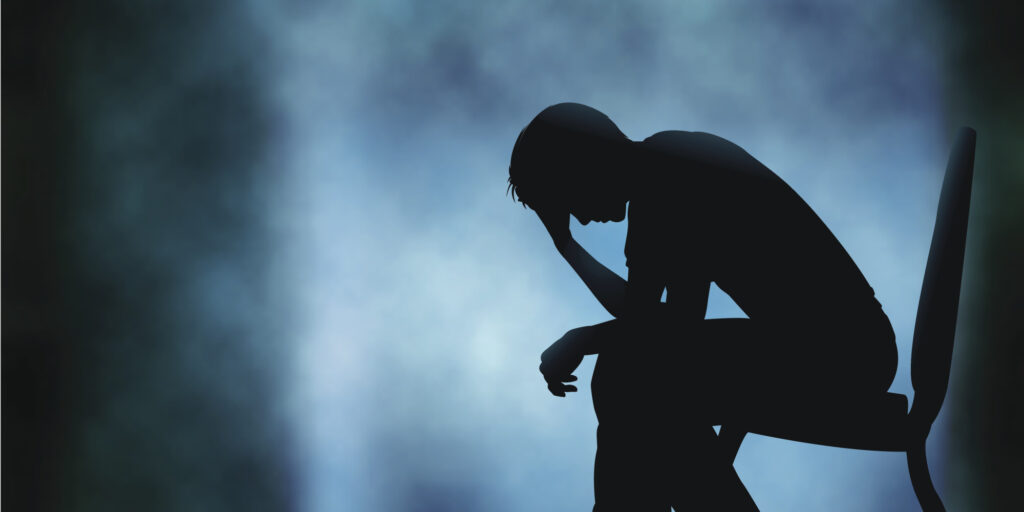
Understanding the Challenges Athletes Face
Being an elite athlete is both a privilege and a challenge. While they get to pursue their passion and compete at the highest levels, athletes also face immense pressure, stress, and unique mental health obstacles.
The Pressures of Competition
Athletes operate in a high-stakes environment where the demand to perform at their best is constant. The fear of failure, the scrutiny of the media, and the pressure to live up to expectations can take a significant toll on their mental wellbeing. As NBA player Kevin Love openly shared, “There’s a stigma that if you step out of that role of being a ‘tough athlete,’ you get labeled as weak.”14




The Toll of Injury and Setbacks
Sustaining an injury can be devastating for an athlete, both physically and mentally. The recovery process is grueling, and the fear of re-injury or not being able to return to their previous level of performance can lead to anxiety, depression, and a sense of loss of identity. As former U.S. women’s soccer goalkeeper Hope Solo reflects, “I hit an all-time low. I didn’t leave the house. I was in a complete depression.”14
Balancing Sports and Life
Elite athletes often devote the majority of their time and energy to their sport, leaving little room for a balanced lifestyle. Maintaining healthy relationships, pursuing educational or career goals, and managing the demands of everyday life can be extremely challenging. This imbalance can contribute to burnout, emotional exhaustion, and mental health struggles.
The Mental Health Crisis in Sports
Despite the perception of athletes as invincible, the reality is that they experience mental health issues at rates comparable to the general population. In fact, studies suggest that up to 35% of elite athletes suffer from a mental health crisis, including conditions like stress, anxiety, depression, eating disorders, and substance abuse.2
The Stigma Surrounding Mental Health
One of the biggest barriers to addressing mental health in sports is the persistent stigma. As NFL player Brandon Marshall aptly states, “When I first heard the term ‘mental health,’ the first thing that came to mind was mental toughness. Masking pain. Hiding it. Keeping it inside.”14 This culture of stoicism and the fear of being perceived as weak or unable to handle the demands of their sport prevents many athletes from seeking the help they need.
Underutilization of Mental Health Resources
Even when resources are available, many athletes are reluctant to utilize them. A survey of college athletes found that while 33% experienced significant mental health concerns, only 10% sought help.2 This disconnect highlights the need for a more comprehensive and accessible approach to supporting athlete mental health.
Voices of Courage: Athletes Sharing Their Stories
In recent years, a growing number of athletes have bravely come forward to share their personal struggles with mental health. Their openness has not only helped to destigmatize the conversation but has also inspired others to seek the support they need.
DeMar DeRozan: “It’s Not Nothing I’m Against or Ashamed Of”
NBA star DeMar DeRozan was one of the first high-profile athletes to openly discuss his battles with depression. As he eloquently stated, “It’s not nothing I’m against or ashamed of…If it’s just somebody can look at it like, ‘He goes through it and he’s still out there being successful…’.”14
Kevin Love: “Mental Health Isn’t Just an Athlete Thing”
Cleveland Cavaliers forward Kevin Love has been a vocal advocate for mental health awareness in sports. In a powerful essay, he shared, “Mental health isn’t just an athlete thing. What you do for a living doesn’t have to define who you are. This is an everyone thing.”14
Michael Phelps: “It’s OK Not to Be OK”
Legendary swimmer Michael Phelps has been open about his struggles with depression and the importance of seeking help. As he emphasizes, “For the longest time, I thought asking for help was a sign of weakness…Well, you know what? If someone wants to call me weak for asking for help, that’s their problem.”14
Coping Strategies for Athlete Mental Health
To address the mental health challenges faced by athletes, a multifaceted approach is necessary. This includes developing effective coping strategies, fostering a supportive environment, and ensuring access to professional mental health resources.
Embracing a Positive Mindset
One of the key strategies for athletes is to reframe their mindset and embrace a more positive outlook. As NFL player Dak Prescott suggests, “Mental health is a huge issue and a real thing in our world right now, especially the world we live in where everything is viral and everyone is part of the media.”14 Techniques like self-talk, visualization, and goal-setting can help athletes maintain a healthy perspective and manage stress.
Prioritizing Self-Care
Maintaining a balanced lifestyle and engaging in self-care practices can be a powerful tool for athlete mental health. As NBA player Josh Richardson emphasizes, “You have to consciously stay on your mental health, because if you don’t, you can look up and you’re depressed or you’re just not in the right state of mind.”14 Activities such as regular exercise, mindfulness practices, and seeking social support can help athletes manage the demands of their sport.
Seeking Professional Help
When mental health challenges become overwhelming, it is crucial for athletes to seek professional support. As psychologist Dr. Emmett Gill notes, “Athletes are becoming true champions for mental health. Athletes are not just talking the talk, but they are sharing their walk, through their own mental health challenges, and in doing so these courageous men and women are not just changing sports, but forever changing society.”2
Creating a Culture of Support
Addressing the mental health crisis in sports requires a collaborative effort from athletes, coaches, sports organizations, and the broader community. By fostering a supportive environment and prioritizing mental health, we can empower athletes to thrive both on and off the field.
The Role of Coaches and Organizations
Coaches and sports organizations play a pivotal role in shaping the culture around mental health. As NFL player Matt Leinart emphasizes, “As a student-athlete, as a college football player, you base your whole schedule around your football schedule…When you don’t have that umbrella, that schedule of your training, your meals and your rehab and your practice and your meetings and your film and all that…that’s what makes me really nervous about all this and concerned for the mental health of these players.”14 By fostering open communication, providing mental health resources, and destigmatizing the issue, coaches and organizations can create an environment where athletes feel supported and empowered to prioritize their wellbeing.
Peer Support and Mentorship
Establishing peer support networks and mentorship programs can be a valuable resource for athletes. As former NFL player Gerald McRath shares, “I was never going to seek the help that I needed. I think God knew that. And sitting in that jail cell, it dawned on me that maybe getting arrested was God’s way of setting me free.”14 Connecting athletes with peers who have walked a similar path and can offer guidance and support can be a powerful way to combat isolation and encourage help-seeking.
Holistic Approaches to Mental Health
Ultimately, addressing the mental health of athletes requires a comprehensive and holistic approach that addresses both individual and systemic factors. As the International Olympic Committee’s consensus statement emphasizes, “An early intervention framework can optimise athlete mental wellbeing and respond rapidly to mental health symptoms and disorders as they emerge to best maintain the athlete’s overall function.”13
A Call to Action: Supporting Mental Health in Sports
The mental health crisis in sports is a complex and multifaceted issue, but there is hope. By raising awareness, destigmatizing the conversation, and providing comprehensive support, we can empower athletes to prioritize their mental wellbeing and achieve their full potential.
Ways to Get Involved
- Educate yourself and others about the importance of mental health in sports
- Advocate for increased funding and resources for athlete mental health programs
- Support organizations and initiatives that are working to address this issue
- Reach out to athletes in your community and offer a listening ear or mental health resources
- If you or someone you know is struggling, don’t hesitate to seek professional help
Resources for Support
- Niskize
- Niskize, Swahili for “listen to me” is an entity that runs a 24-hour call center offering counseling services to people in distress. Besides this, the organization also offers face-to-face individual and group sessions to persons living with long-term health challenges and those dealing with trauma, as well as teenagers and persons struggling with substance abuse.
- Further, the Nairobi-based organization runs several support groups for various groups of people among them those dealing with depression and anxiety, persons living with bipolar disorder, those struggling with loss and grief, among others.
- Niskize’s suicide prevention helpline is 0900 620 800. The organization can also be reached on +254 718 227 440.
- Emergency Medicine Kenya Foundation (EMKF)
- EMKF is a nonprofit organization started in 2015 by Dr. Benjamin Wachira and Dr. Jeremiah Gitau to guide and inform the development and sustainable emergency medical care system appropriate for the Kenyan healthcare system.
- The organization runs a free nationwide Suicide Prevention and Crisis helpline that is operated by professionals with experience in suicide prevention.
- EMKF’s suicide prevention hotline is 0800 723 253.
- Oasis Africa
- Founded in 1990 by Dr. Gladys Mwiti and Dr. Gershon Mwiti, Oasis Africa identifies as a “professional indigenous psychological counseling and training organization.” The Nairobi-based entity aims at among other things, to bring healing to many hurting communities in the world.
- Among the services offered by the 30-year-old organization, include mental health awareness, stress management, professional counseling and psychotherapy, personal development, among others.
- Oasis Africa can be reached on 254 725 366 614 and +254 (0) 110 862 23.
- Cognitive Behavioral Therapy-Kenya (CBT-Kenya)
- Based in Nairobi, CBT Kenya is a psychotherapy center that offers counseling and therapy support to people dealing with mental health that manifest as anxiety, depression, insomnia, anger, and substance abuse. The center’s goal is to empower people to be in control of their lives by achieving mental health.
- As part of its suicide prevention awareness activities, CBT-Kenya shares critical information and spreads hope to people affected by suicide. With this initiative, the center hopes that all members of the society have what it takes to discuss suicide and seek help when necessary.
- One can reach out to CBT-Kenya on +254 739 935 333 or +254 756 454 585.
Conclusion
The mental health of athletes is a critical issue that deserves our attention and action. By embracing a culture of understanding, providing comprehensive support, and empowering athletes to prioritize their wellbeing, we can create a sports landscape that nurtures both physical and mental excellence. Let’s work together to ensure that every athlete has the resources and support they need to thrive.







